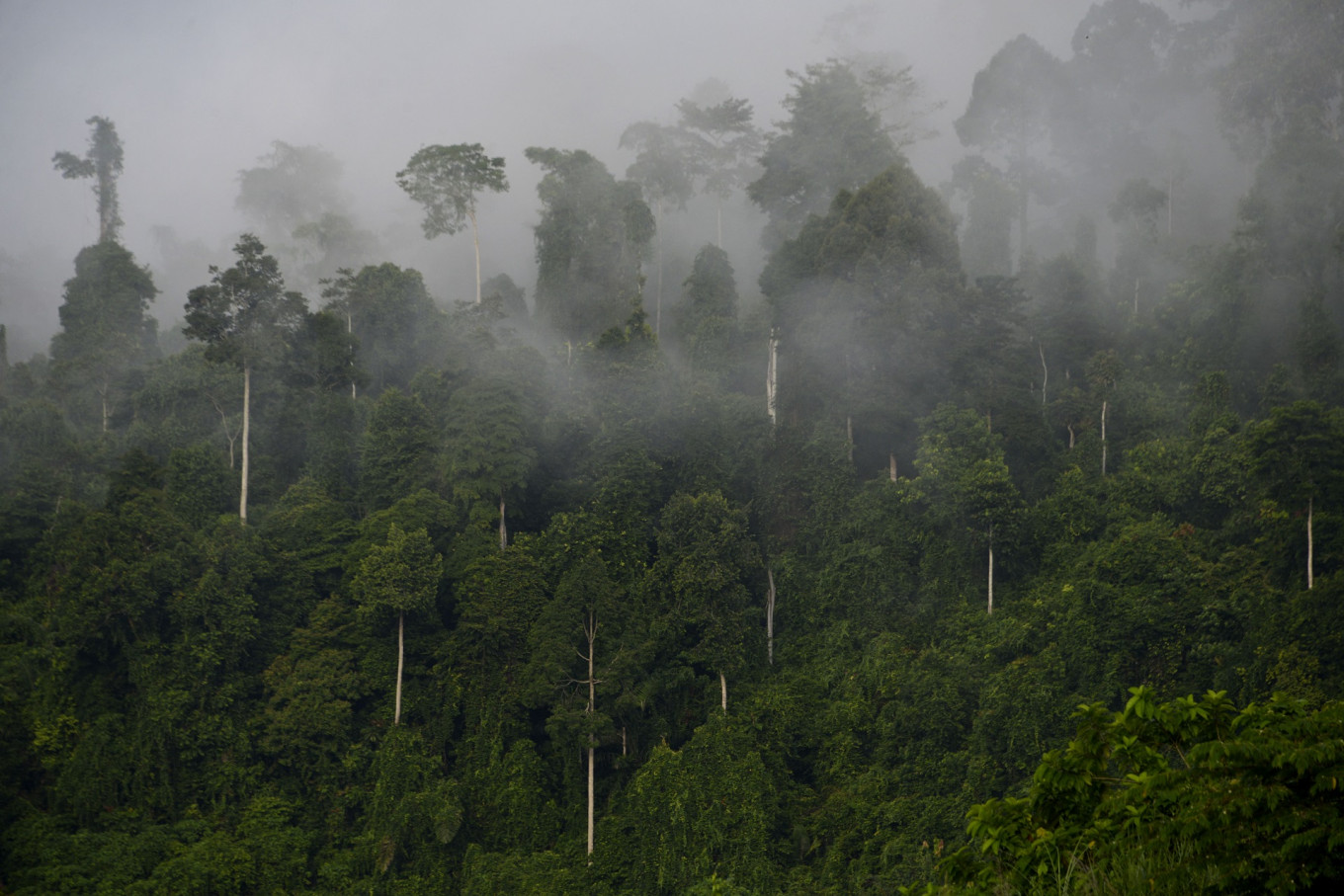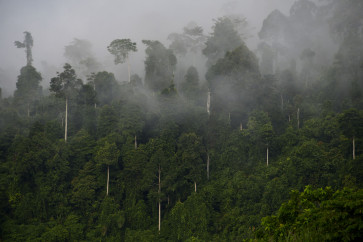Popular Reads
Top Results
Can't find what you're looking for?
View all search resultsPopular Reads
Top Results
Can't find what you're looking for?
View all search resultsCarbon trading future and implementation challenges for Indonesia
In addition to keeping the concession away from fires, illegal logging to encroachment, the concession owner needs to restore the forest into its original ecosystem.
Change text size
Gift Premium Articles
to Anyone
T
he United Nations Climate Change Conference of the Parties (COP26) in November in Glasgow, Scotland, appeared to have brought a new wave of optimism for the future of carbon trading, as shown in the issuance of Presidential Regulation No. 98/2021 on the implementation of carbon pricing for achieving nationally determined contribution target and controlling greenhouse gas emissions in national development (Perpres No. 98/2021).
This presidential regulation was issued because of the increasing number of countries that apply carbon pricing (carbon taxes, carbon trading) instruments to reduce carbon emissions. Data from the Chicago Climate Exchange (CCX) from 2020 to November shows that the carbon market has continued to grow despite the economic recession. Currently, 3.76 percent of carbon emission reductions are carried out through carbon trading at a price of US$40 to $80.
Despite the growing demand, the supply of the carbon market is still lower than the expected target to fulfill the first Kyoto Protocol. There are currently two independently operated carbon markets: the compliance market and the voluntary market. The compliance market is mainly driven by the Kyoto Protocol, while the voluntary market is driven by the industrial sector and pressure from investors to meet the net-zero emissions target.
Nowadays, many countries have regulated international carbon trading. However, this scheme may potentially reduce the carbon credits owned by the selling country, which in turn may reduce the nationally-determined contribution (NDC) target. Therefore, Indonesia insists on certain flexibilities in international carbon trading. There is a trend of increasing demand for carbon credits in the voluntary market, while the supply remains small.
Many countries participating in COP want to be quickly involved in international carbon trading under the condition that there are transparency, suitable prices and flexibility to either put it in NDC or sell it. For example, climate impact X provides a platform for carbon trading that fulfills the wishes of the country holding the carbon credits. This certainly shows the future of carbon trading for Indonesia, including the trend of carbon trading in the voluntary scheme.
So far, ecosystem restoration has been regarded as a sustainable forestry business because it restores the forests that are damaged due to exploitation. As there is no written basis for restoration in the forestry laws, this discretion is incorporated into the forest utilization business license (PBPH) in the new Job Creation Law.
There are 14 types of forest utilization in PBPHs that are considered multibusiness, one of them being non-timber forest product and carbon trading that may be included in the ecosystem restoration scheme. Out of 16 restoration licenses that have existed since 2007, only three to four companies have practiced carbon trading in the voluntary market.



















